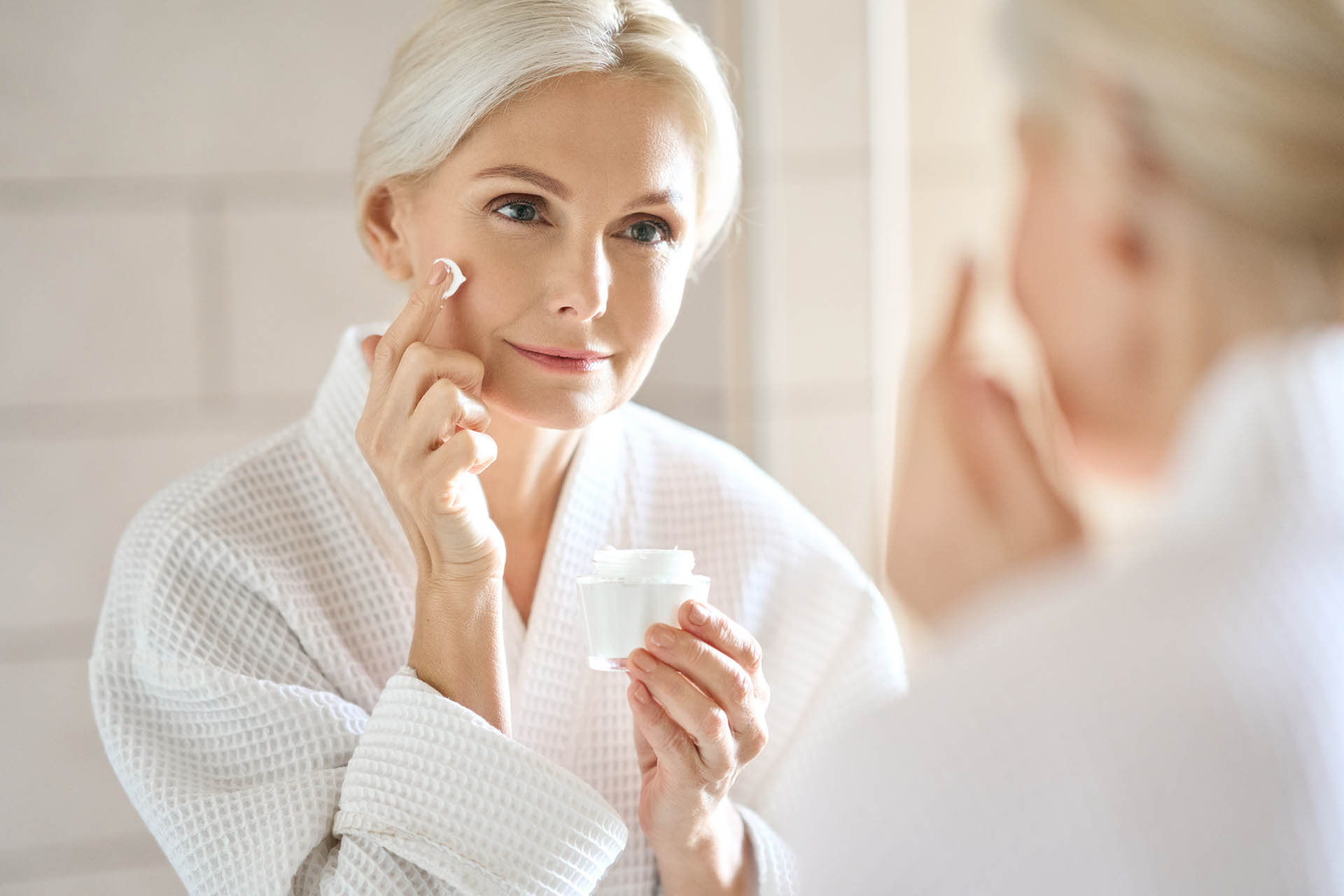It’s getting cold and we’re all feeling it, as is our skin! With changes in the seasons, our skin care needs alter. Here’s an overview of what changes can occur, along with some tips for how to look after your skin in winter.
Why does my skin change in winter?
There are several reasons our skin changes in winter. Cooler weather, icy winds, drier air, hot showers, frequent changes in temperature and heaters all play a role. As a result of these factors, we lose more moisture from our skin, which can lead to dry, flaky skin and in some cases, a compromised skin barrier.
What changes can happen to my skin in winter?
It’s very common for the skin to dry out, and become more sensitive and easily irritated. You might notice dry, flaky skin, and more irritation from skincare products, even if you were previously using them without any trouble. This is especially true for products containing active ingredients. Some people may develop areas of eczema or dermatitis in winter, which can appear as localised dry, pink and itchy patches of skin.
How should I change my skincare routine and products in winter?
There are a few things to consider changing in winter, to help your skin better tolerate the cooler climate.
Cool down your showers
Firstly, as hard as it is, keeping your showers brief and dialling down the temperature will do your skin a big favour. Long hot showers, as pleasurable as they may be, contribute to moisture loss from the skin, which dries it out.
Avoid overheating
Spending all day sitting in front of a heater will keep you nice and cosy, but has the added effect of drying out your skin even more! Limiting reliance on heaters and opting for an extra layer of clothing instead may help reduce how dry your skin becomes.
Change up your cleanser
Changing to a more hydrating cleanser, such as a milk or cream based cleanser, will help your skin retain more moisture during the cleansing process. Additionally, using lukewarm rather than hot water to cleanse, and gently patting rather than rubbing your skin dry will help your skin even more.
Look for a heavier moisturiser
Using a heavier moisturiser with a higher oil content, such as a cream or balm, will help draw water into the skin and reduce water loss from the skin. In addition, applying your moisturiser straight after cleansing to skin that is still slightly damp will lock even more moisture in the skin.
Opt for hydrating active ingredients
Looking for products containing hydrating ingredients, such as urea, glycerine and hyaluronic acid, will help counter winter skin dryness. In addition, ingredients such as ceramides and niacinamide will help protect your skin barrier and keep it intact. This will help reduce irritation, and will help you better tolerate potentially irritating ingredients such as retinoids and alpha hydroxy acids.
Cut back on your active ingredients
Many active ingredients can dry out our skin even more, such as retinoids, salicylic acid and alpha hydroxy acids. Reducing how often you use these, or the type or concentration, will help your skin survive the winter chill without becoming too dry or irritated. As an example, if you usually use glycolic acid as a chemical exfoliant, switching to the more gentle lactic or mandelic acids may reduce the dryness you experience over winter, whilst still providing lots of benefits.
Look after your lips
Our skin isn’t the only thing that dries out in winter, our lips can too, leading to uncomfortable, chapped lips. Frequent application of a fragrance-free lip balm which contains hydrating ingredients such as shea butter, urea or lanolin, will help. Avoiding licking your lips and drinking plenty of water will help too.
Remember your SPF!
Just because the weather has cooled down, it doesn’t mean it’s an excuse to skip the SPF. UV rays are present year-round, so keep up your sunscreen every day, even if you’re staying inside.
What if I have oily skin?
Even those of us with oily skin can develop dry areas in winter, so the same tips apply. Looking for heavier but non-comedogenic moisturisers will help prevent pores from becoming blocked and acne developing.





